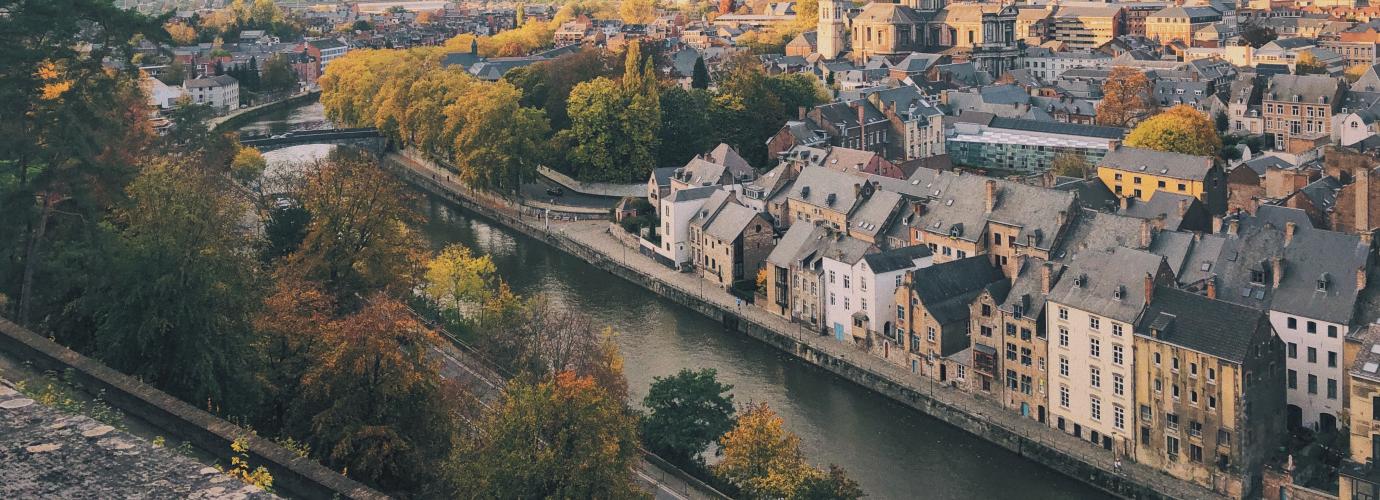Types of institutions
Higher education is provided in universities (with which the architecture colleges were integrated in 2010-2011), Hautes Ecoles, Arts Colleges and social advancement education.
Each type of higher education institution has its own purposes which determine different teaching structures and methods.
Universities, “Hautes Ecoles” and Arts Colleges are part of the so-called full-time education.
Social advancement education (teaching for adults) is part of the dynamics of education and lifelong learning in the French Community and offers adults a wide range of programs and training at the secondary and higher education level. Finally, it is a modular education through which learning activities are organized by training units, which are capitalized to lead to the award of a diploma via a so-called integrated examination. Social advancement education institutions empowered to organize higher education programs and to issue higher education diplomas are listed in Article 13 and Annex VI of the Decree of 7 November 2013 defining the landscape of higher education and the academic organization of studies.
Higher Education consists of short-type programmes (180 ECTS, sometimes 240 ECTS) and long-type programmes (60 or 120 ECTS - sometimes 180 ECTS - after obtaining the grade of bachelor of transition). Both types are found in the Hautes Ecoles, Arts colleges, and Social Advancement Education, whereas the Universities only offer long-type programmes. Long-type education has the character and level of university education.
An important reorganisation of the higher education landscape has been voted by the government on 7 November 2013, implementing the "Landscape" decree. All the higher education institutions will be federated under the "Academy of Research and Higher Education" (Académie de Recherche et d'Enseignement Supérieur – ARES) with the aim of simplifying administration and of researching consistency of the whole system. The institutions will organise themselves in five academic clusters.
Apart from these structural aspects, the reform focuses on organisation of the curriculum. The guiding thread of the project is the student, his status, the promotion of academic success, the diversity of provision (including proximity for first cycles), and quality of the curriculum. The new curricula will follow a logic of academic success promotion with and individualised management of each student's years of study according to his achievements.
This new organisation was implemented in September 2014.
Study programs
There are 26 fields of higher education : 1° Philosophy, 2° Theology, 3° Languages, Letters and Translatology, 4° History, 5° History of Art and Archeology, Information and Communication, 6° Political and Social Sciences, 7° Legal Sciences, 8° Criminology, 9° Economics and Management, 10° Psychological Sciences and Siences in Education, 11° Medical Sciences, 12° Veterinary Sciences, 13° Dentistry, 14° Biomedical and Pharmaceutical Sciences, 15° Public Health Sciences, 16° Motricity Sciences, 17° Sciences, 18° Agronomy and Biological Engineering, 19° Engineering Sciences and Technology, 20° Art of Building and Urban planning, 21° Art and Art Sciences, 22° Plastic, Visual and Space Arts, 23° Music, 24° Theater and Performing Arts, 25° Performing Arts and Broadcasting and Communication Technology, 26° Dance.
These fields are divided into 4 sectors: "human and social sciences", "health", "sciences and techniques" and "art".
Specific missions
The primary mission of university education is to maintain, disseminate, and advance science. Education and research are closely linked. Universities are also vested with a cultural and critical function, and increasingly seek to promote the practical side of education by means of links between fundamental and applied research, links with companies, and so on.
In the Hautes Ecoles, short-type higher education consists of a programme of study that provides technical training with a view to the acquisition of a professional qualification in a specific domain. Long-type (university-level) higher education seeks abstraction beyond the concrete aspect of things and provides scientific and technological training geared more directly towards practical applications. It trains highly qualified technical management staff for transposition and development tasks and short-term applied research.
Short-type or long-type higher education is also provided in the four sectors.
Higher education in the arts, dispensed in the Arts Colleges, is defined as a setting for multidisciplinary research and creation, in which the fine arts, visual arts and spatial arts and their teaching are explored in an inseparably linked manner. The purpose of short-type education in the arts colleges is the practice of an artistic profession. Through artistic instruction and knowledge of cultural research, the aim is to produce professionals in their crafts, autonomous specialists who are able to take their future in hand, in particular through research focusing on the professional use of the arts. Long-type education offers in-depth and versatile training on a broad optional basis, fed by interdisciplinary experimentation and research. The studies organised by the arts colleges only falls within the "Art" sector.
Social advancement education, including social advancement in higher education, has two purposes. It contributes to individual fulfillment by promoting a better professional, social, educational and cultural integration (development of people) and it responds to the needs and requests for training coming from companies, administrations, education and in general from the socio-economic and cultural backgrounds (needs of society).
Public and private education
Each higher education institution belongs to a network which may be either state-run (institutions run by the French Community or other public bodies) or free (institutions run by a confessional or non-confessional private institution), subsidied by the French Community.
The programmes that each higher education institution may provide are defined for each cycle and each site by its accreditation.

